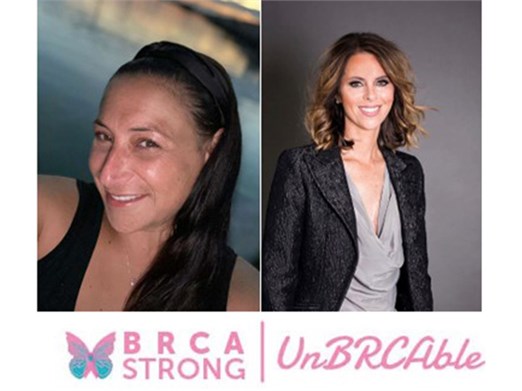Anxiety When Treatment Stops
The worst is behind you, you're supposed to be finished with breast cancer. But you still worry. What to do?

Your treatment is over, and your life is pretty much back to normal. You look and feel good, physically, and everyone is relieved that the worst is behind you. So why are you feeling so anxious?
Relax. You are not alone.
It's not uncommon for women to feel anxiety when treatment for breast cancer stops. When you first started treatment, regular medical appointments, clinic visits or hospitalizations probably seemed disruptive. After a while, though, they became an ordinary part of your schedule, and the members of your healthcare team began to seem more familiar than many of your friends. In addition, there was something reassuring about the constant monitoring of your health. Now all that is ending, and it's really not surprising that, on some level, you not only miss it, but worry that something will be missed if you don’t remain as vigilant.
Recurring worries
One of the biggest fears you may face during this period is that you will have a recurrence of your cancer. Little aches and pains that you barely would have noticed before suddenly may seem to take on huge significance. It's natural to be afraid that your cancer might return. However, it may help to remind yourself that everyone has minor symptoms now and then. If you have a symptom that is urgent or severe, or one that lasts for several days, by all means see your doctor. But keep in mind that most breast cancer survivors never have a recurrence.
Here are 4 tips for managing your fear of cancer returning:
- Don't neglect your medical care once cancer treatment is over. Make sure you know who is in charge of your care now and when your next checkup should be.
- Discuss your worries with an understanding friend. Or join a support group, where you can talk about your feelings with other women who have been there.
- Find other things that help you keep anxiety at bay. Try reading a good book, working in the garden, going for quiet walks, starting something calming like yoga, or life affirming like watching a funny movie—whatever works for you.
- Know that your anxiety is likely to fade with the passing years. Eventually, cancer will stop being the center of your life and start receding to the background.
When to Seek Help
As you move into the post-treatment phase of your life, it's normal to feel a little uneasy. If your anxiety starts to spiral out of control, however, you may begin to feel overwhelmed by constant fear or worry that doesn't go away and that just grows worse with time. For some women, the anxiety itself may get so bad that it causes disturbing symptoms, such as insomnia, fatigue, muscle tension, trembling, headaches, hot flashes, or irritability. In addition, it may start to interfere with the ability to function at home or work. If your anxiety reaches this point, it may be time to consult a mental health professional.
Today, we understand that not just war veterans or victims of violent crimes suffer from Post-Traumatic Stress Disorder (PTSD). If you are experiencing any of the following symptoms, you may be experiencing PTSD:
- nightmares or flashbacks about the cancer experience
- continuously focusing on the cancer experience
- avoiding people, places, and events that remind you of the experience
trouble sleeping - extreme irritability
- intense feelings of fear
being overly excitable - feeling helpless or hopeless
- shame or guilty feelings
- bouts of crying
- feeling emotionally numb
- sadness or depression
- loss of appetite
- trouble maintaining personal relationships
- self-destructive behavior (alcohol or drug abuse, for example)
- memory problems
- concentration problems
- being startled or frightened easily
- getting no joy from activities you used to enjoy
- hallucinations
Ask your doctor, nurse, or minister for a referral. Today, most people with severe anxiety can be helped by counseling, medications, or a combination of both.
Resources for You:
BreastCancer.org —This website provides helpful information for breast cancer patients and survivors. There are numerous links to articles and PDFs on fear of recurrence.
Living Beyond Breast Cancer —This nonprofit organization sponsors conferences, a newsletter, online message boards, and other educational materials for breast cancer survivors. They also operate a free survivors' helpline: (888) 753-LBBC -- that’s (888) 753-5222.
U.S. National Institute of Mental Health —This government institute publishes fact sheets about anxiety disorders. It also has an information line: (888) 8-ANXIETY -- that’s (888) 8-269-4389.







